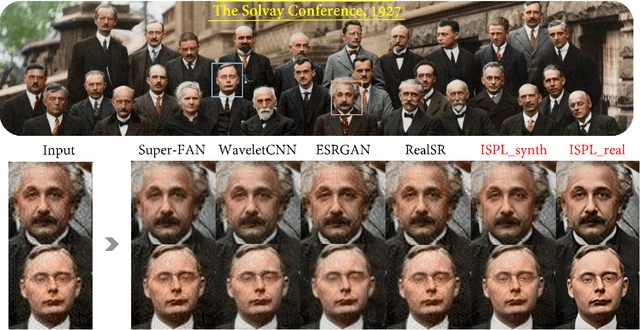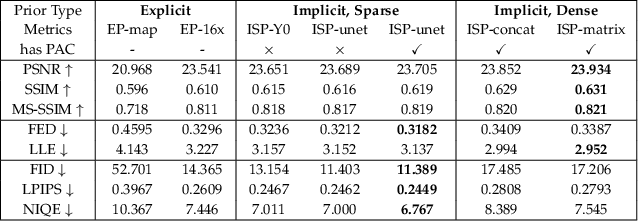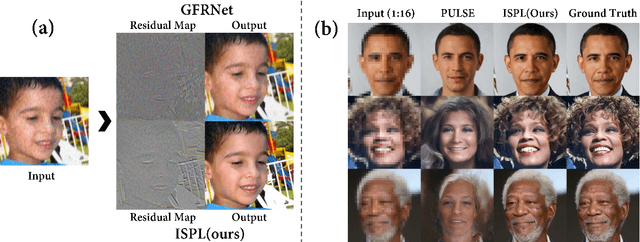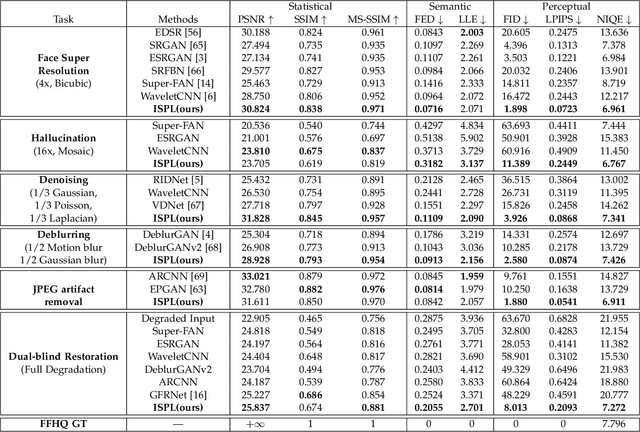Implicit Subspace Prior Learning for Dual-Blind Face Restoration
Paper and Code
Oct 12, 2020



Face restoration is an inherently ill-posed problem, where additional prior constraints are typically considered crucial for mitigating such pathology. However, real-world image prior are often hard to simulate with precise mathematical models, which inevitably limits the performance and generalization ability of existing prior-regularized restoration methods. In this paper, we study the problem of face restoration under a more practical ``dual blind'' setting, i.e., without prior assumptions or hand-crafted regularization terms on the degradation profile or image contents. To this end, a novel implicit subspace prior learning (ISPL) framework is proposed as a generic solution to dual-blind face restoration, with two key elements: 1) an implicit formulation to circumvent the ill-defined restoration mapping and 2) a subspace prior decomposition and fusion mechanism to dynamically handle inputs at varying degradation levels with consistent high-quality restoration results. Experimental results demonstrate significant perception-distortion improvement of ISPL against existing state-of-the-art methods for a variety of restoration subtasks, including a 3.69db PSNR and 45.8% FID gain against ESRGAN, the 2018 NTIRE SR challenge winner. Overall, we prove that it is possible to capture and utilize prior knowledge without explicitly formulating it, which will help inspire new research paradigms towards low-level vision tasks.
 Add to Chrome
Add to Chrome Add to Firefox
Add to Firefox Add to Edge
Add to Edge